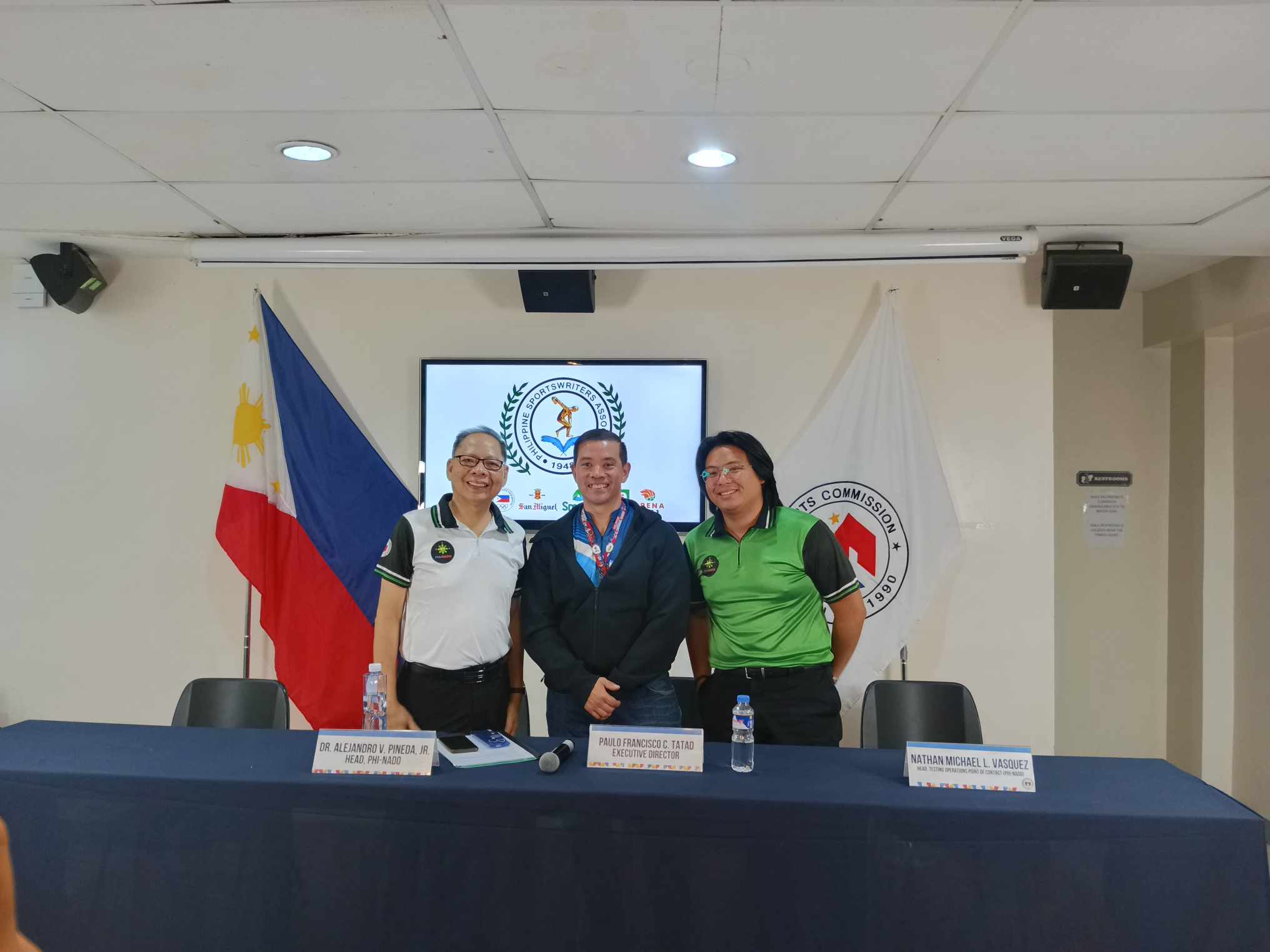At A Glance
- The Philippine National Anti-Doping Organization (PHI-NADO) aims to strengthen its organizational structure as it looks forward to becoming more independent in the future.<br>
The Philippine National Anti-Doping Organization (PHI-NADO) aims to strengthen its organizational structure as it looks forward to becoming more independent in the future.

After PHI-NADO disputed World Anti-Doping Agency’s (WADA) allegations of non-compliance, the Philippine Sports Commission wants the anti-doping body to become fully independent bas practiced by other countries, and continue to educate all the stakeholders, including the various national sports associations (NSAs), and the thousands of athletes and coaches under its watch.
“Given the progression and evolution of anti-doping in the global sporting world, a lot of countries right now have independent anti-doping agencies, diba?” said PSC executive director Paulo Tatad in Tuesday’s Philippine Sportswriters Association (PSA) Forum at the Rizal Memorial Sports Complex.
“Not only Philippines, even some countries in the SEA region are catching up, it is proper na let’s say the Philippines or PHI-NADO has its own independent doping agency,” he added.
Tatad stressed that they have been talking with several stakeholders, including the blessing of President Ferdinand "Bongbong" Marcos Jr., to make the plan more realistic.
“We spoke with BBM to help PSC in how we can move it forward. We need a certain number of permanent positions, we’re working on the justifications, the numbers, na ito ang pwede naming gawin for the next couple of years,” he added.
Also gracing the forum were PSC chairman Richard Bachmann, PHI-NADO chief Dr. Alex Pineda and testing operations head Nathan Vasquez.
Bachmann cited Malacanang’s “total support” in the bid to create an independent PHI-NADO that can fully cater to the high demands of the national athletes and become fully compliant with the WADA code. Lending a hand with this cause are members of the Senate and Lower House.